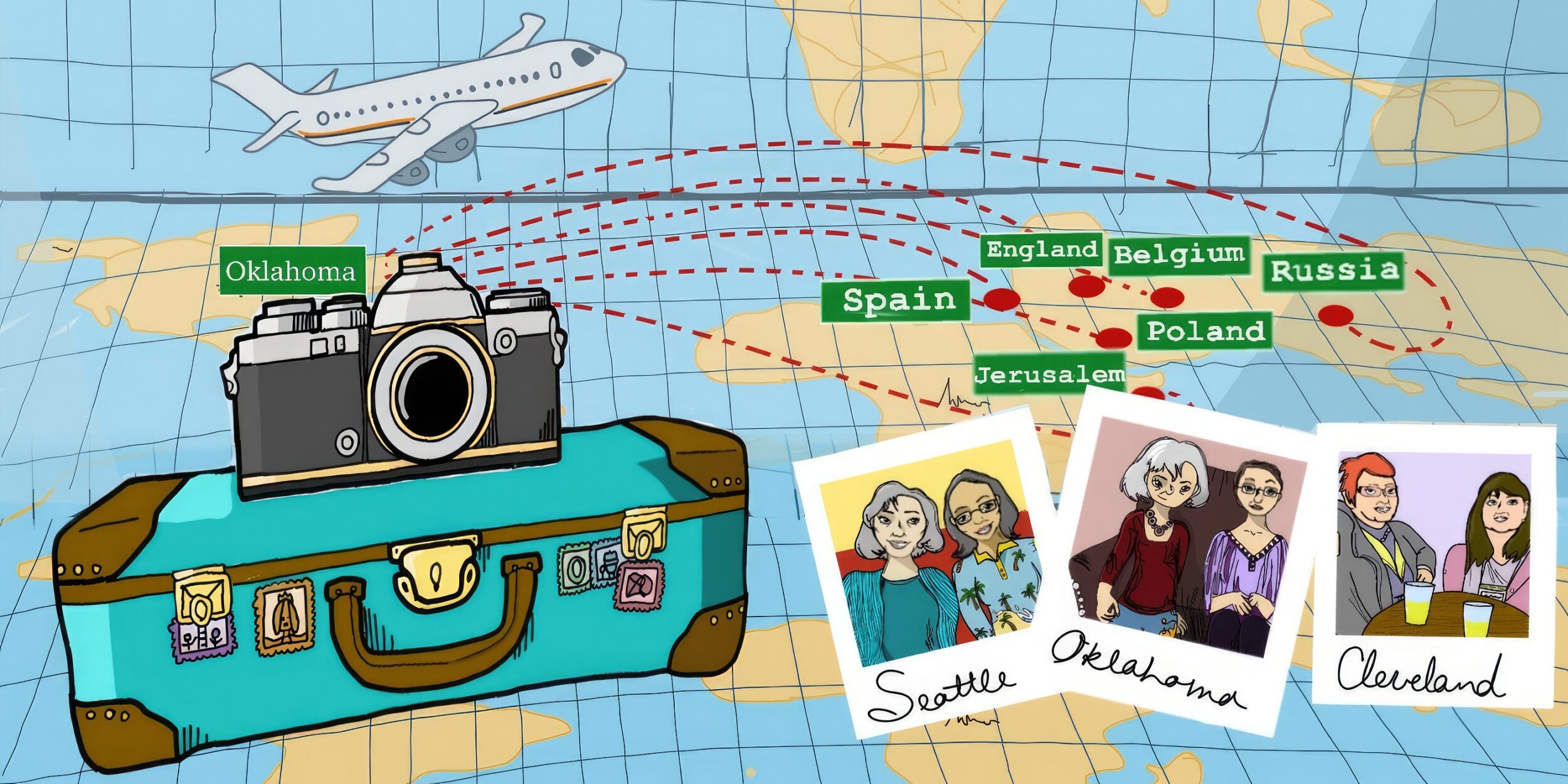Members sometimes ask me, “Why should I do service? Won’t someone else do it? I don’t have the time!” But my sponsor always says: “SA was here when I needed it, and it is my responsibility to see that it is here for somebody else!”
Our program literature emphasizes recovery (not just sobriety), attitude adjustment, and changing our habits. We hear a lot about change in our culture, but Twelve Step fellowships have long taught that attitude change is fundamental.
I didn’t want to change at first. Then I thought I might need just a little change. But how could I change? The answer is “practice.” I needed to practice good habits until they became a part of me. I had to practice not acting out, practice clear thinking, and practice being of service to others. And it worked! Indeed, “It is one of the most beautiful compensations in life—that no man can sincerely try to help another without helping himself” (Ralph Waldo Emerson).
Twenty years ago, my wife asked me to leave our home because of my misbehavior. The pedestal she had put me on had crumbled. She was devastated. I was invited back two and a half years later, with conditions, which I accepted. My service work had given me plenty of opportunity to practice behaviors that have paid off in our marriage.
With more time (and more practice) my wife and I became better at expressing our feelings, communicating, and respecting and understanding each other. My past resentments have been replaced with admiration for her skills and accomplishments. I’m still working on tolerance in my reactions to a world that doesn’t revolve around me. I have a propensity to blow up.
Two years ago, we celebrated our 45th wedding anniversary with a trip to Hawaii. We flew over acres of hardened lava where forests, flowers, and communities had been. That’s the sort of destruction I had caused in our marriage. Harsh words and a judgmental attitude can cause as much destruction as the lava flowing down the sides of a volcano.
We also drove through a rainforest that had grown up in the ancient lava flows. It was reassuring to see that pain and destruction had been replaced with peace and beauty. Scars can still be found, but the pain of scars can be lessened.
Our program suggests praying for those we’ve hurt when we cannot make direct amends. I believe that another amends we can make to those we’ve hurt is to serve them. When I freely serve someone, I feel better! I don’t know why this works, but I thank my Higher Power that my program works when I work it—and when I serve someone else, things do get better.
Communication seems to me to be both the easiest and the hardest part of life. I need to practice communication within my family and as well as in service work. Experience not shared is of little value to others. I must carry the message. I must tell others, whether they want to hear it or not. Because the message I carry is not always accepted, I sometimes feel inadequate. But my responsibility is to present the message. The response is not my responsibility.
Some members, when asked to serve, decline and say, “It’s okay, you can do what you want.” But they don’t realize that what I want is for them to serve with me. Sobriety is only the start of recovery. When I short-change myself, I hurt everyone.
I often say: “Recovery means progressing to where my life should have been all along, whereas sobriety is just the cessation of acting out.” Will Rogers said, “Even if you are on the right track, you’ll get run over if you just sit there.” Sobriety is critical, but declining service is like leaving the table before dessert is passed out.
Victory over lust is our common goal. Before coming to this program, we had no idea how to accomplish that and our efforts were unsuccessful. But help is available in SA. We need to share our recovery tool box with others. Tools include Step work, sponsorship, sharing in meetings, books, pamphlets, the ESSAY newsletter, recordings, phone calls, marathons, and conventions. I keep a collection of literature, tapes, and CDs in our group meeting room available to members as a lending library.
Group inventories are a good service opportunity, if they are carried out without blaming—just open and honest brainstorming, and a willingness to examine where the group as a whole is in recovery. I’m familiar with a group that was concerned about members intentionally watching Internet porn while calling themselves sober. Their discussion during a group inventory resulted in an addition to their meeting agenda:
“This group does not support the practice of deliberate exposure to porn of any kind as being consistent with either progressive victory over lust or sexual sobriety. We do wholeheartedly offer, under God, our experience, strength, and hope to any who want to stop lusting.”
During the inventory, each member had the opportunity to share his or her experience, strength, and hope while focusing on a specific topic. The consensus provided reinforcement for all. It was a service by the group to all of its members.
The benefits of service include fellowship, friendship, and improved relationships with others, including my Higher Power, family, neighbors, coworkers, other friends, and myself. In my sickness, I was looking for ego boosts and praise from others. But when joining with others in being of service, my need for ego boosts and praise is not so overwhelming. I’m accepted for who I am as others see me, warts and all.
Another benefit of service is that I’ve learned to be less greedy. I love being of service in my home group, region, and on International committees, especially in my current position as Chair of the General Delegate Assembly. I also participate in service outside the fellowship. I’m committed to the service I do, but when my time is up, I’ll get out of the way and make room for others. I want everyone to experience the benefits. There are enough service opportunities for everyone.
All service positions are important. Members can begin service by helping out at home group meetings, and then move on to Intergroup and regional service. The SA fellowship has openings at all levels: Trustees, Delegates, and Regional Representatives, as well as members who participate on all International Committees. However, I believe that the most important service position of all is sponsorship. Whatever experience, strength, and hope I have was obtained with the help of other members. I must give back what I have received!
We all know that sponsorship is a two-way street. Years ago, a young man in our group (whom I did not sponsor) asked at a meeting whether I had been riding my bicycle in a certain place at a certain time. I said I had and asked why. He said, “I was driving out to an adult club when I saw you; then I turned around and went back home, still sober.” Fifteen years later, I am still blessed by his encouragement.
Sometimes I feel that my Higher Power has given me a bigger burden than I can carry—but God has not asked me to do anything alone. He led me to SA, and He put many caring people in my pathway here. He will continue to help me. I only have to be willing and take the actions.
A poster in our meeting room says, “Service is the rent we pay for room on this Earth.” I like the idea of service being like paying rent. Paying higher rent usually yields nicer living; experience shows more service also yields higher dividends.
In the past, by not choosing to reject temptations, I in effect made the choice to become a sex addict. Today I can make the choice to reject lust and acting out, and I can choose to be sober and of service to others. What do you choose for yourself?
May your Higher Power surround you with His peace and comfort.
Larry H.






